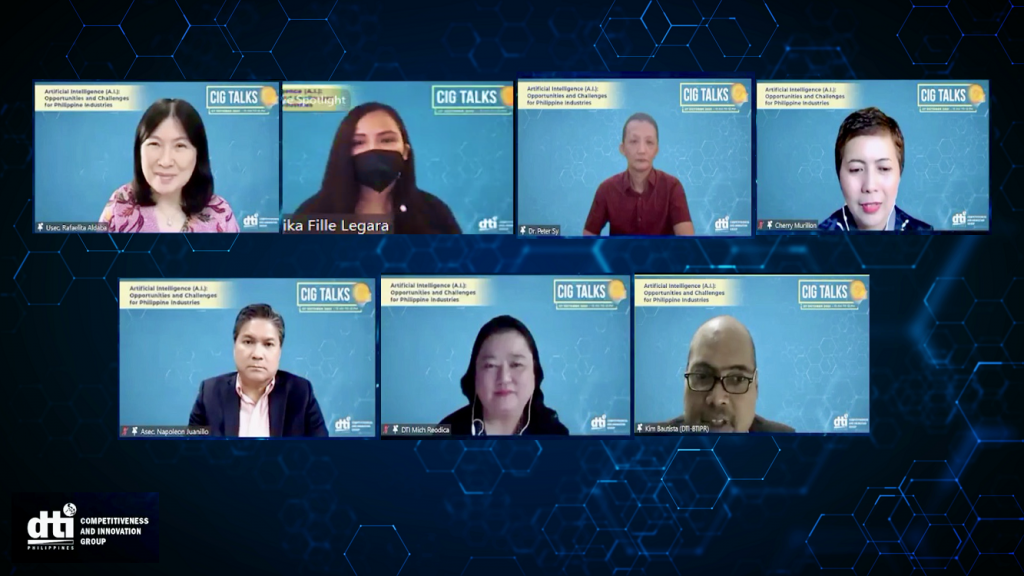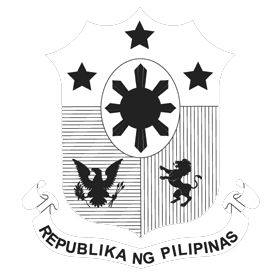
2021 1st CIG Talks Focused on the Prospects and Challenges of Artificial Intelligence (A.I.) for Philippine Industries
MAKATI CITY, Philippines – As a supplement to the launch of the National Artificial Intelligence (A.I.) Strategy Roadmap in May 2021, the Department of Trade and Industry (DTI) Competitiveness and Innovation Group (CIG) successfully conducted this year’s first CIG Talks on 27 October 2021, with the theme “Artificial Intelligence: Opportunities and Challenges for Philippine Industries”. Over 450 participants participated in the webinar via Zoom and official Facebook pages of DTI and DTI-CIG.
The virtual event saw experts from the academe and industry give talks and exchange views on the state of A.I. in the country. Following the country’s National A.I. Strategy Roadmap and its key recommendations, the speakers detailed the proposed National Center for Artificial Intelligence Research (NCAIR), the pandemic’s impact on the use of A.I. by the companies, and ethical considerations in the use of A.I..
Trade and Industry Undersecretary Rafaelita Aldaba pointed out that A.I. has potential to bring about positive change, if developed correctly, and that the wide view of A.I. represents a big window of opportunity for the Philippines to leverage on our existing comparative advantage, especially, on IT BPM. “Through A.I. R&D, we would be able to address social, economic, environmental and health issues, and create innovative goods and services to finally eradicate poverty.” she added.
Key to the implementation of the country’s A.I. initiatives is the establishment and full operationalization of the NCAIR. NCAIR will serve as a catalyst in making the Philippines an A.I. hub and a center of excellence in the region, by enhancing both the software and physical aspects of our technological infrastructure, aiding in reskilling and upskilling the workforce, and ultimately, helping our MSMEs in their digital transformation.
The discussions likewise brought to the fore other critical considerations such as the importance of institutionalizing a synchronized and harmonized implementation of A.I. across various sectors and the country at large, the necessity for ethical use of A.I. by having regulations and governance that promote creativity of A.I., the need to make A.I. technologies affordable and accessible if we are to ensure their sustainability, and the significance of establishing a strong collaboration among the different sectors in order to build a robust A.I. ecosystem in the country.
Finally, Usec. Aldaba underscored that the country’s A.I. strategy takes and keeps the people at its core for we believe that nobody should be left behind in building a creative future. END

Republic of the Philippines
All content is in the public domain unless otherwise stated.
About GOVPH
Learn more about the Philippine government, its structure, how government works, and the people behind it.




